.NET Conf 2019 review
The .NET Conf 2019 is over - here my review of it!
.NET Conf 2019
Overall it was great! Huge thanks to everyone that contributed to that event. Especially to the community speakers that took the effort to prepare and present a topic. The organization and moderation served by Microsoft was good as well.
There is a lot of great content that can be watched on demand - unfortunately not all content is ready to be watched. Most community talks (Day 3) is still not available while writing this post.
Highlights
Be aware that the following content is my subjective impression: what I watched and liked. It is possible that it doesn’t match with your own thoughts - which is totally okay. Feel free to share with me your thoughts, maybe I missed an interesting aspect.
.NET Core 3.0 & C# 8
Of course, the whole release of .NET Core 3.0 is the biggest thing they announced - even if everyone knew that already. Second, the C# 8.0 language update that goes along side with .NET Core 3, is also worth watching.
So, download .NET Core 3.0 and update your apps or libraries.
Secure your NuGet package eco-system
Firstly, I thought that this is a boring talk about private nuget feeds etc. But it turned out to be useful, for single developers up to huge enterprise developer teams!
In a nutshell, the nuget client lets you decided which: package sources, package types, package author you trust. Quickly recap how that could look like:
<?xml version="1.0" encoding="utf-8"?>
<configuration>
<config>
<!-- The value "require" will enable the validation. -->
<add key="signatureValidationMode" value="require" />
</config>
<trustedSigners>
<author name="microsoft">
<certificate fingerprint="3F9001EA83C560D712C24CF213C3D312CB3BFF51EE89435D3430BD06B5D0EECE" hashAlgorithm="SHA256" allowUntrustedRoot="false" />
</author>
<repository name="nuget.org" serviceIndex="https://api.nuget.org/v3/index.json">
<certificate fingerprint="0E5F38F57DC1BCC806D8494F4F90FBCEDD988B46760709CBEEC6F4219AA6157D" hashAlgorithm="SHA256" allowUntrustedRoot="false" />
<owners>microsoft;aspnet;nuget</owners>
</repository>
</trustedSigners>
</configuration>Tips and Tricks for .NET Debugging in Visual Studio
This talk had two thing I did not knew: Data Breakpoints and the function Return Value.
The Data Breakpoints are well-known for developers with a C++ background, now they are available in .NET:
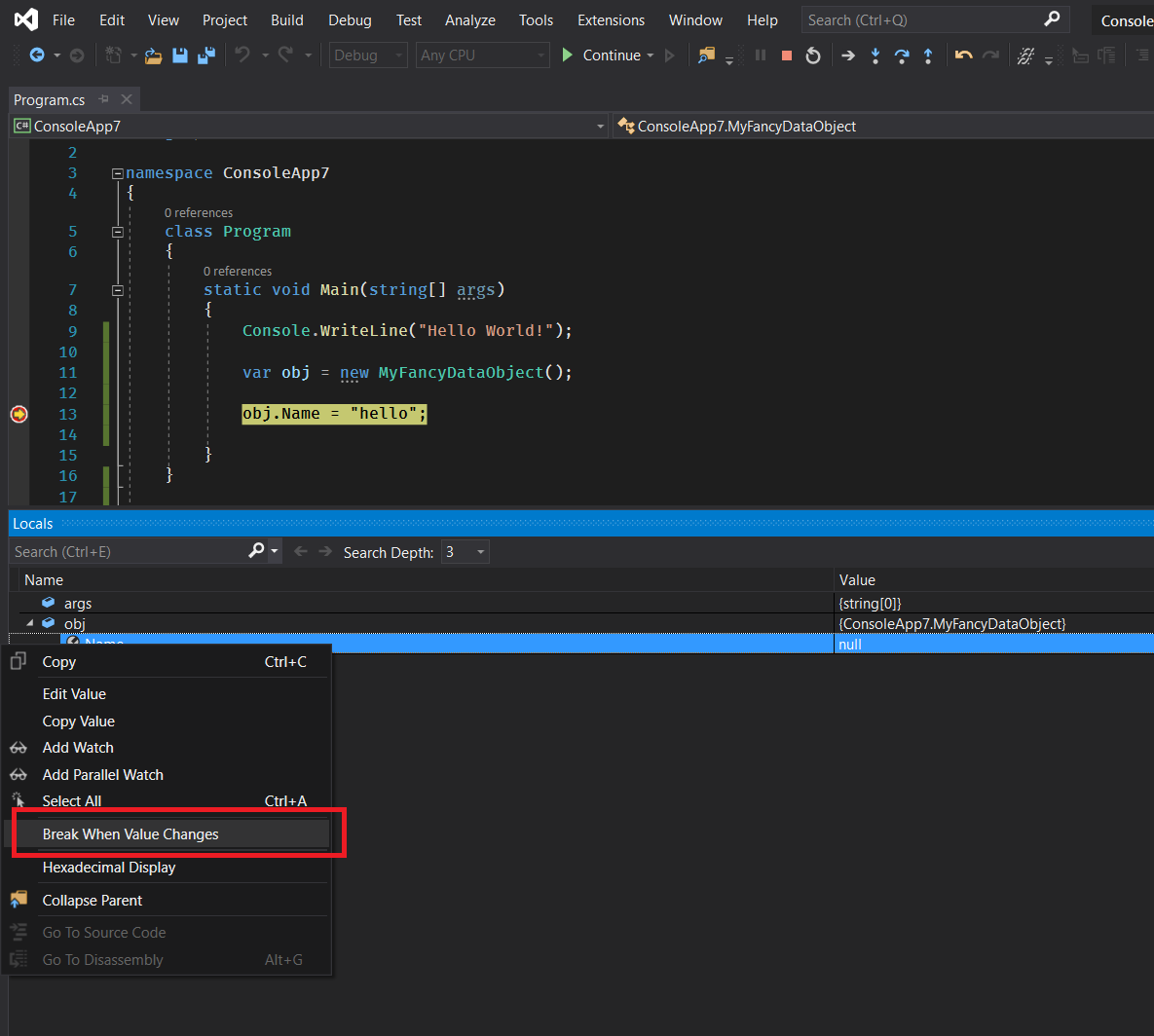
As the name already said, the breakpoint is hit when data (in this case the property) is changed. That is extremely useful when you have no clue “who” and “when” a specific property changes. It also shows the previous value and the “incoming” value:
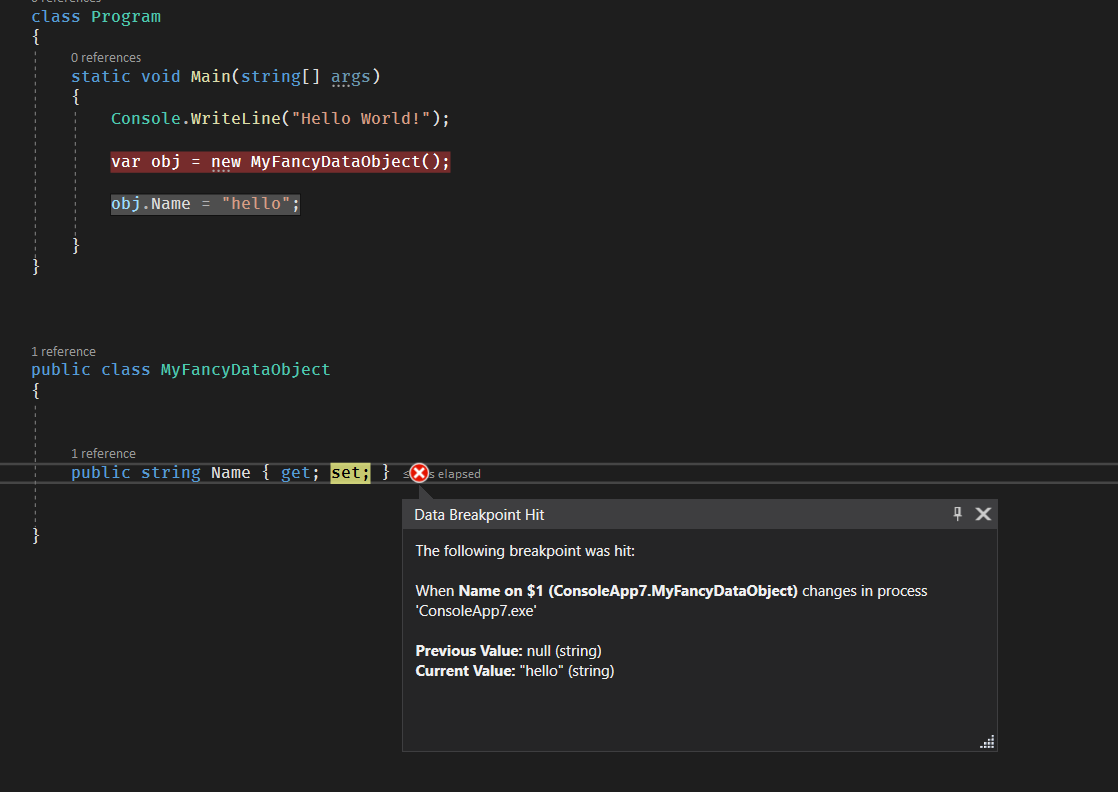
Now, the function Return Value is best explained with the following code snippet:
public static string GetGreeting(string country)
{
var result = $"Hello World from {country}";
return result;
}Did you ever catch yourself writing similar code like above, just to see what the computed return value of your function is? This is exactly where the function Return Value feature kicks in: by simply provide a “shadow local variable” called $ReturnValue. You can see this value in the locals window:
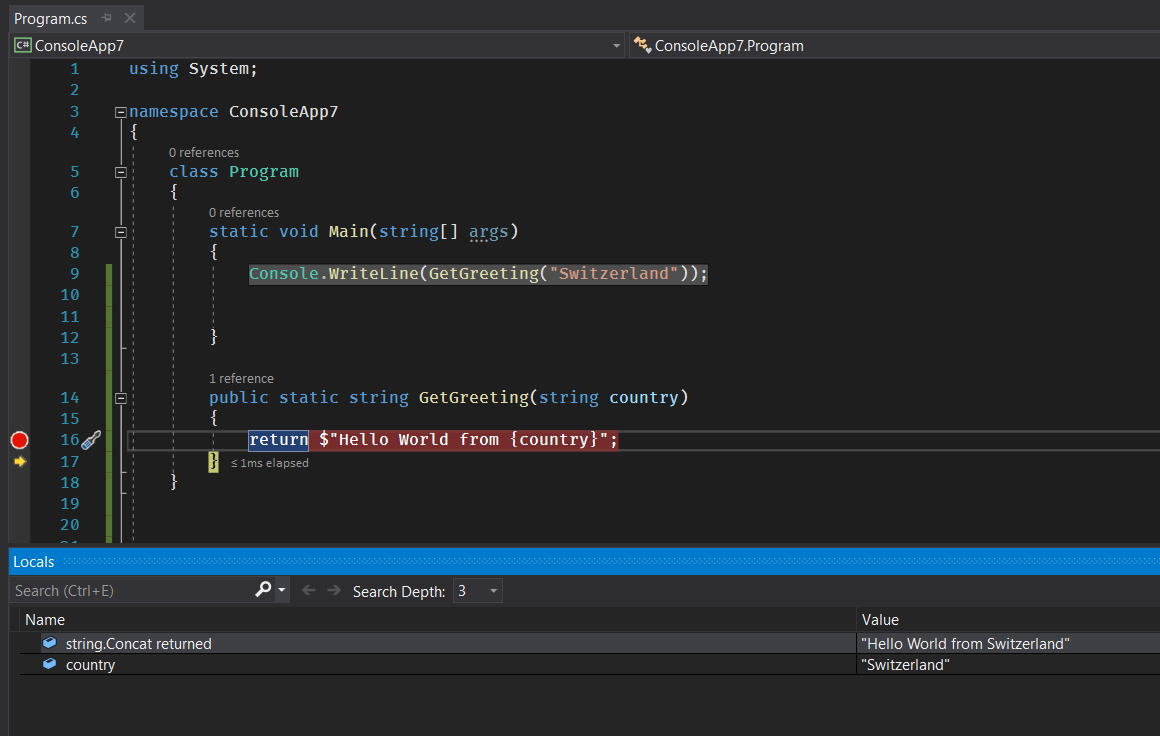
Or you can access it the watch window:
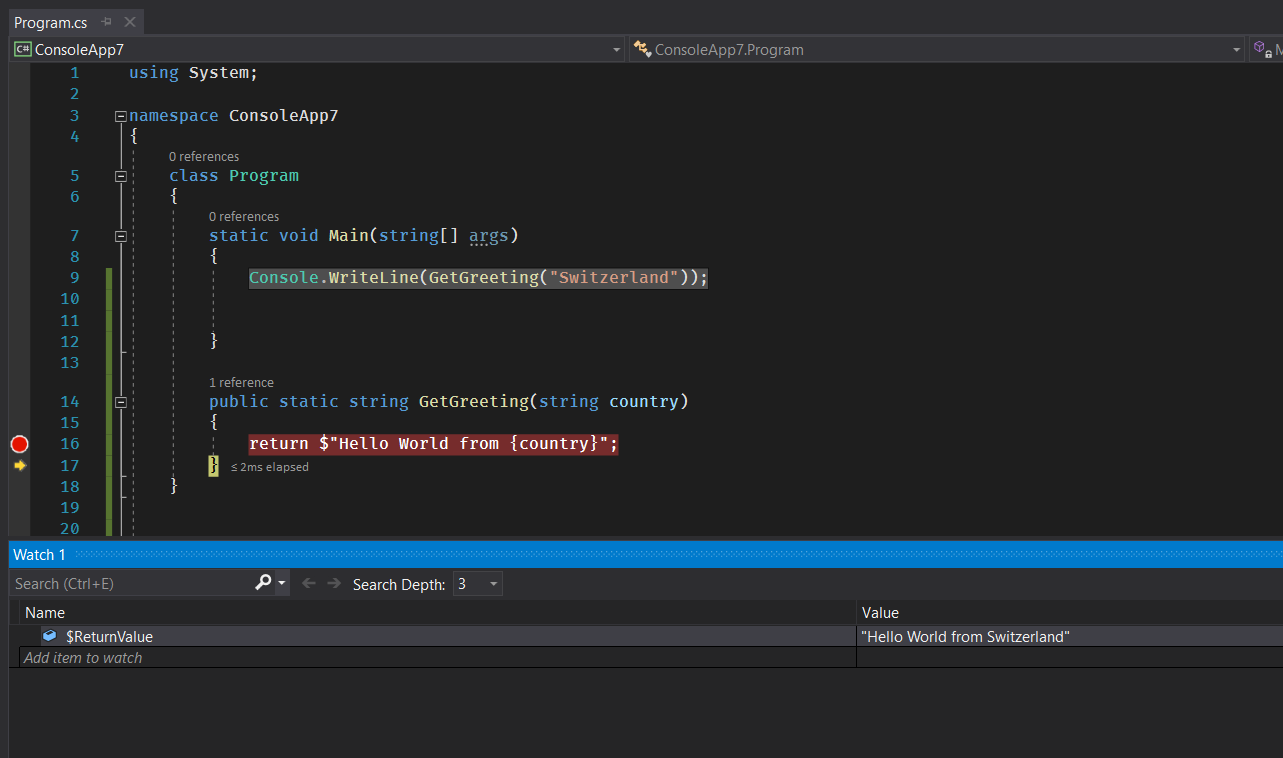
Increase your .NET Productivity with Visual Studio 2019
Visual Studio is still the IDE that I use most of the time. So, I’m always crave for productivity tips, to get my job done easier.
Something that I missed when I stopped using resharper, was fixing namespace accordingly to the directory structure in my projects. But this is now available as a code-fix:
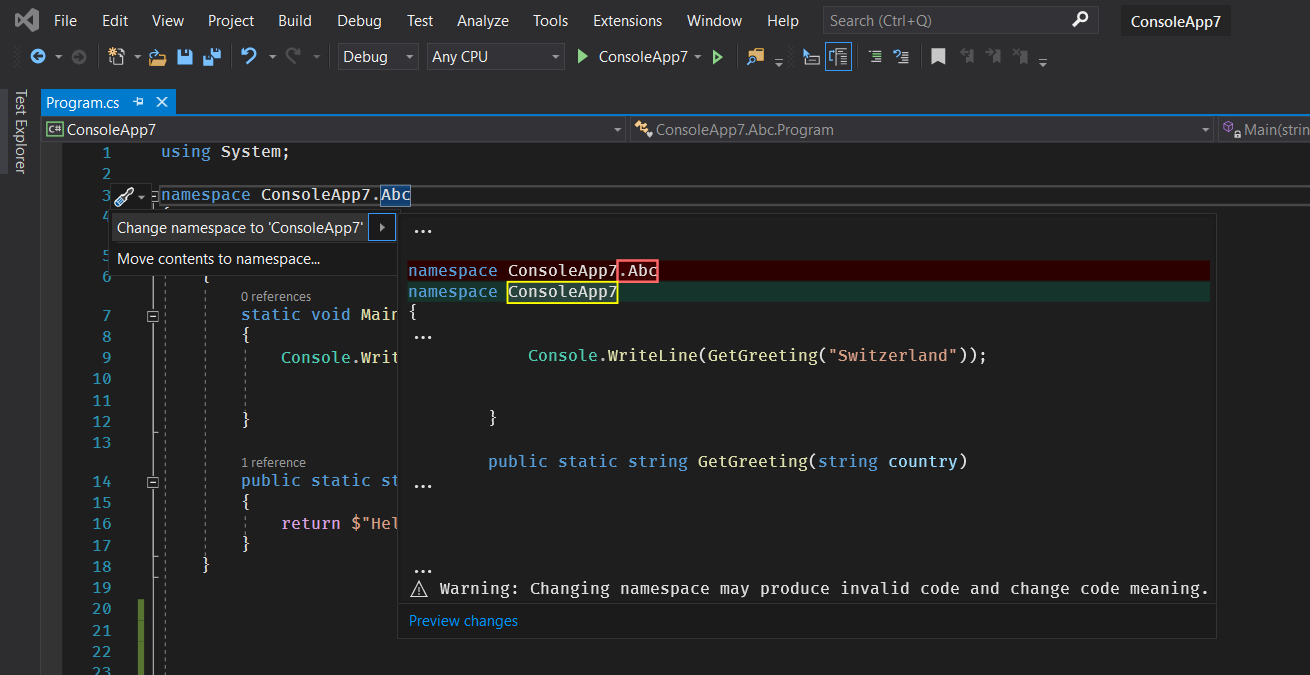
Next, a quickfix that is also useful: creating a parameter out of a local variable:
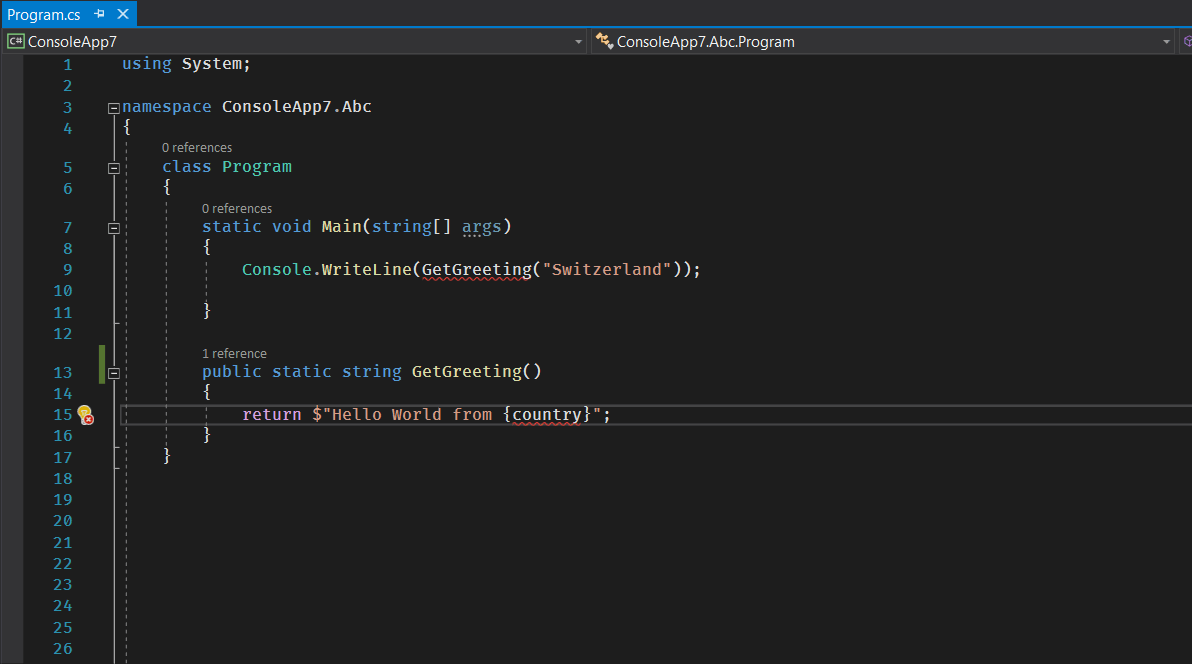
I like to see VS 2019 is catching up with missing refactorings and simplify our daily tasks.
Finally, I hope you like my “mini” review - feel free to share with me your thoughts.